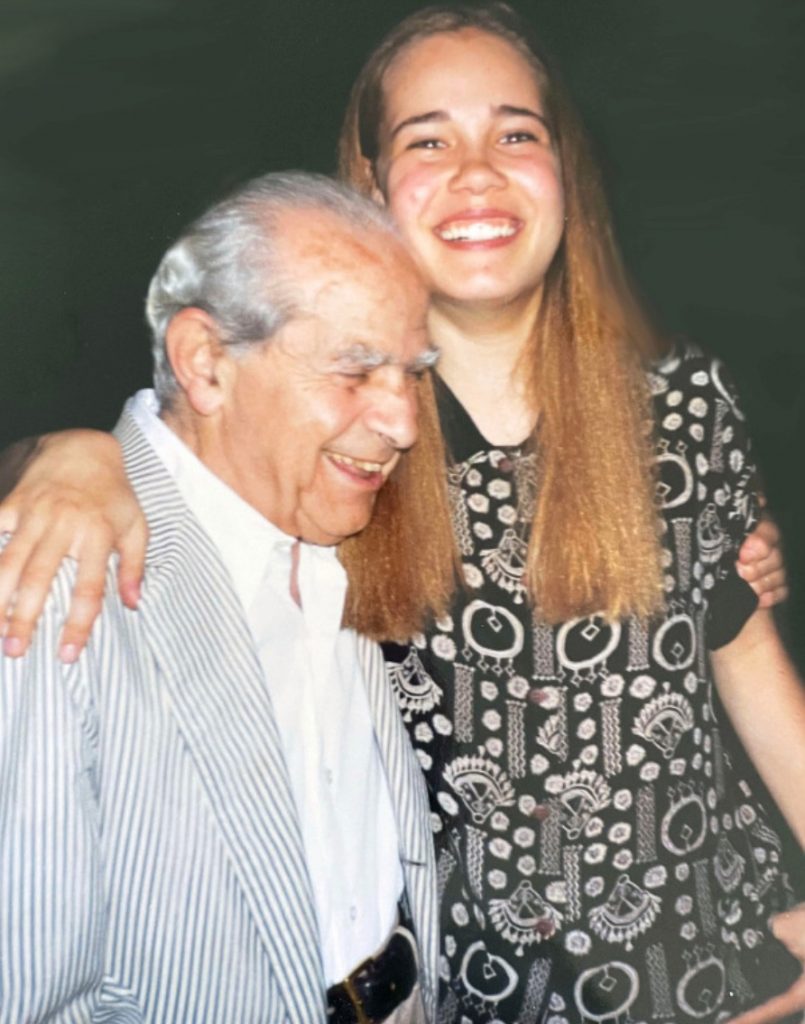by Mike Telin

“It really is an honor to have had so many beautiful opportunities to perform with that incredible orchestra,” Josefowicz said during a Zoom conversation. “There’s a great pride in the quality of what they do and I’m always super excited to be there and play my very best.”
On Thursday, May 23 at 7:30 pm at Severance Music Center, Josefowicz will join Franz Welser-Möst and The Cleveland Orchestra in Alban Berg’s haunting Violin Concerto. The program also includes Mozart’s Serenade No. 10, “Gran Partita,” and the Prelude and Liebestod from Wagner’s Tristan und Isolde.
The program, which will be repeated on Saturday at 8:00 pm, is part of The Mandel Opera and Humanities Festival. Click here to see the full schedule of the Festival. Tickets are available online.
“Alban Berg is a giant to me,” Josefowicz said. ‘If there is a period of time in music composition that has shaped me the most, I would say it is the Second Viennese School. I love the art from that period. Artists were trying things and weren’t afraid to create something that might make people feel uncomfortable. While the twelve-tone row is in some ways very restrictive, I think that constraint helped composers to become even more expressive, and I’m very attracted to that.”

Josefowicz also performed the Concerto many times with her good friend Oliver Knussen. “Listening to works from that period with him was so inspiring.” She also recorded two of Arnold Schoenberg’s string quartets with cellist Fred Sherry. “This kind of music really took off for me. I wouldn’t be the same player without my love of this period of music. I’m excited to collaborate with Franz. The piece is a big job between the soloist and the conductor, and I’m looking forward to it.”
Berg dedicated his concerto to “the memory of an angel” — Manon Gropius, the 18-year-old girl he thought of as a daughter. It was also the composer’s last completed work.
“I really think that it’s about life, death, grieving, and rebirth,” Josefowicz said. “The first movement is whimsical, and from what I’ve read about her character, Manon Gropius was full of life. The second movement I think is more about death overtaking her. And then there’s the Bach Chorale — Es ist genug (“It is enough”). I try to shape my playing to these ideas and what I consider to be expressive sounds around these ideas.”
Josefowicz noted that while the Concerto is full of intellectual ideas, the key to performing the piece is understanding the voicing techniques of the second Viennese school.
“There’s the main voice, the Hauptstimme, and then the second voice, the Nebenstimme, and then the voices that are still underneath that. If there’s a melody being passed from the woodwinds to the trumpet, from the trumpet to the horn, from the horn to the cellos, then maybe I’m Nebenstimme. Then I have to bring out the lines which are clearly marked as Hauptstimme. These things are important so that people can hear what’s happening. It’s fun for me because it’s really like a ping-pong of different melodies and interactions between me and the orchestra. I love doing collaborative music like this.”
The violinist said that looking back to her student days, she didn’t realize how learning the Berg would catapult her into the world of new music. Still, she followed a conservative career path for a good ten years before things began to shift.
“I thought, I’m a good violinist and many of my colleagues are good violinists as well. Why are we all playing the same music? Why are we all being asked to play the same five concertos? I love these pieces, but what am I going to do in 20 years? I have to keep trying different directions just to enhance the love of newer music that people may already have. And if they don’t, to encourage them to open themselves to some newer things.”
Josefowicz said that she enjoys meeting the audience. “Sometimes people come to me after I play a piece by say, Thomas Adès, Luca Francesconi or even Esa-Pekka Salonen’s Violin Concerto, and they tell me that ‘this is the first concert I’ve ever been to and it was awesome.’ I think that’s amazing. It’s also wonderful to get a compliment from someone who has known classical music for a long time. But there’s a place for everything. There are different tastes, which is wonderful. There are different opinions, which is also important. Classical music is so rich in that way.”
Published on ClevelandClassical.com May 21, 2024.
Click here for a printable copy of this article



